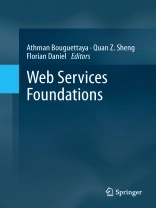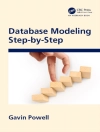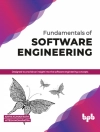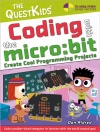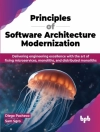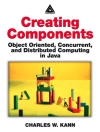Web services and Service-Oriented Computing (SOC) have become thriving areas of academic research, joint university/industry research projects, and novel IT products on the market. SOC is the computing paradigm that uses Web services as building blocks for the engineering of composite, distributed applications out of the reusable application logic encapsulated by Web services. Web services could be considered the best-known and most standardized technology in use today for distributed computing over the Internet.
Web Services Foundations is the first installment of a two-book collection covering the state-of-the-art of both theoretical and practical aspects of Web services and SOC research. This book specifically focuses on the foundations of Web services and SOC and covers – among others – Web service composition, non-functional aspects of Web services, Web service selection and recommendation, and assisted Web service composition. The editors collect advanced topics in the second book of the collection,
Advanced Web Services, (Springer, 2013). Both books together comprise approximately 1400 pages and are the result of an enormous community effort that involved more than 100 authors, comprising the world’s leading experts in this field.
Spis treści
Web Services and Business Processes: A Round Trip.- RESTful Web Services: Principles, Patterns, Emerging Technologies.- Conceptual Design of Sound, Custom Composition Languages.- Service-Oriented Programming with Jolie.- From Artifacts to Activities.- On the Composability of Semantic Web Service.- Semantic Web Service Composition: the Web Service Challenge Perspective.- Automated Service Composition Based on Behaviors: The Roman Model.- Behavioral Service Substitution.- Web Service Adaptation: Mismatch Patterns and Semi-Automated Approach to Mismatch Identification and Adapter Development.- Transformation Framework for Consistent Evolution of UML.- Behavioral Elements into BPMN Design Element.- Context-Aware Services Engineering for Service-Oriented Architectures.- Service Selection in Web Service Composition: A Comparative Review of Existing Approaches.- Qo S Analysis in Service Oriented Computing.- Qo S-based Service Selection.- Composition of Web Services: from Qualitative to Quantitative Timed Properties.- Adaptive Composition and Qo S Optimization of Conversational Services through Graph Planning Encoding.- Automated Negotiation Among Web services.- DRAAS: Dynamically Reconfigurable Architecture for Autonomic Services.- Comprehensive Variability Modeling and Management for Customizable Process-Based Service Compositions.- Software Product Line Engineering to Develop Variant-rich Web Services.- Qo S-aware Web Service Recommendation via Collaborative Filtering.- On Bootstrapping Web Service Recommendation.- An Approach for Service Discovery and Recommendation using Contexts.- Data Transformation Knowledge Reuse in Spreadsheet-based Mashup Development Platform.- A Unified RGPS-Based Approach Supporting Service-Oriented Process Customization.- Assisted Mashup Development: On the Discovery and Recommendation of Mashup Composition Knowledge.- End Users Developing Mashups.
